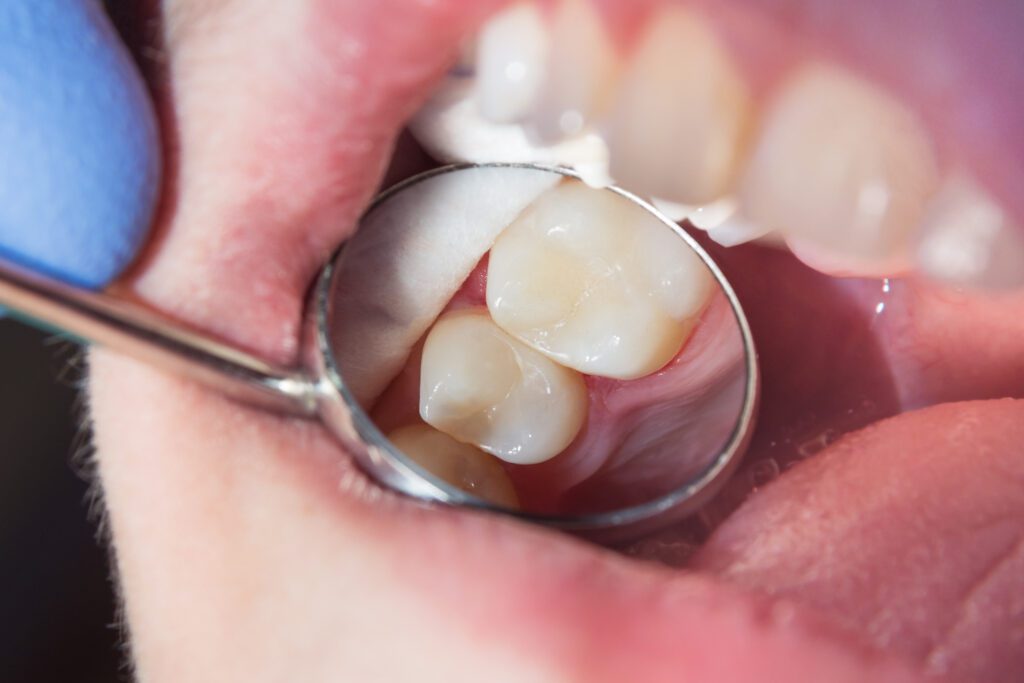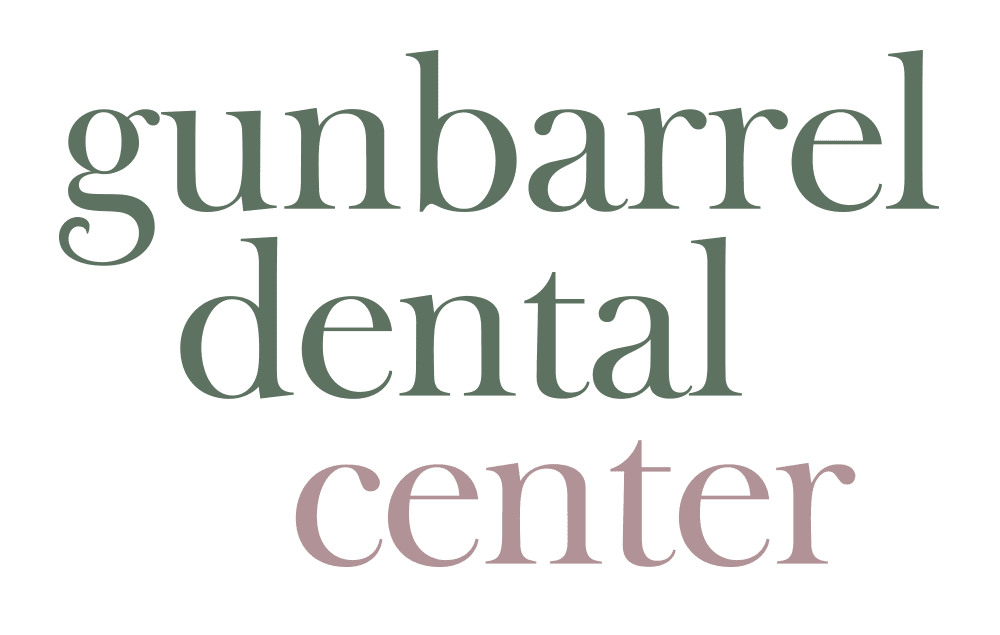Cavities are one of the most common dental problems people face, from young children to adults. A cavity is a hole that forms in a tooth when it starts to decay. Left untreated can lead to pain, infection, or even tooth loss. The good news is that we can treat and prevent cavities with the right care. If you have a tooth cavity in Boulder, CO, Dr. Rachel Barone offers expert treatment at Gunbarrel Dental Center.
Dental cavities are a common dental concern among many patients. Patients also fear the pain of treating cavities. Dr. Barone takes a gentle and personalized approach to make sure your teeth stay strong and healthy.

What Causes Cavities?
Cavities are caused by tooth decay. Tooth decay happens when plaque, a sticky film of bacteria, builds up on your teeth. The bacteria in plaque feed on sugars from food and drinks. As they feed, they produce acids that slowly wear away the enamel, which is the hard outer layer of your teeth.
Over time, these acids create small holes in your teeth. These are called cavities. If not treated, the hole can get deeper and cause more damage. Eventually, it can reach the inner layers of your tooth, leading to pain and possible infection.
Here are some common reasons people develop cavities:
- Poor brushing and flossing habits
- Eating sugary or starchy foods
- Dry mouth
- Not visiting the dentist regularly
The Signs You Have a Cavity
Cavities don’t always cause pain at first. In fact, you may not know you have one unless a dentist finds it during a checkup. That’s why regular dental visits are so important.
However, there are some warning signs you might notice, including:
- Tooth sensitivity, especially to hot, cold, or sweet foods and drinks
- A toothache or pain that doesn’t go away
- Visible holes or pits in your teeth
- Brown, black, or white spots on your tooth
- Pain when you bite down or chew
If you have any of these symptoms, you should see Dr. Barone as soon as possible. The earlier a cavity is found, the easier it is to treat.
Treating a Tooth Cavity in Boulder, CO
When you visit Gunbarrel Dental Center, Dr. Barone will begin by examining your teeth and taking X-rays to see how deep the cavity is. Then, she’ll talk with you about the best way to treat it. Common treatments for cavities include:
Dental Fillings
Fillings are the most common way to fix a cavity. Dr. Barone will remove the decayed part of the tooth and fill the space with a tooth-colored material. This helps restore the shape, function, and appearance of the tooth. Most fillings are quick and easy to complete in just one visit.
Dental Crowns
A filling may not be enough if a cavity is large or the tooth is weak. In that case, Dr. Barone may recommend a crown. A dental crown is a tooth-shaped cap that covers the entire tooth to protect it from breaking. Crowns are made from strong materials and can look just like natural teeth.
Root Canal Therapy
If the decay reaches the inner part of the tooth (the pulp), it may cause infection or a painful abscess. In this case, a root canal may be needed to remove the infected tissue. After cleaning the inside of the tooth, Dr. Barone will seal it and usually place a crown on top.
How to Prevent Tooth Decay
The best way to prevent a tooth cavity in Boulder, CO, is to follow these tips:
Brush Twice a Day
Brushing your teeth is one of the most important things you can do to prevent cavities. You should brush your teeth in the morning and again before bed. Use a soft-bristled toothbrush and fluoride toothpaste. Fluoride helps make your tooth enamel stronger so it can resist decay.
Make sure to brush all sides of your teeth. Take your time and brush for at least two minutes each time. Try setting a timer or playing a short song while you brush to make it more fun and to make sure you’re brushing long enough.
Floss Every Day
Brushing only cleans about two-thirds of your teeth. That’s why flossing is just as important. Flossing helps remove plaque and food that gets stuck between your teeth, places your toothbrush can’t reach. If you don’t floss, that plaque can turn into tartar and cause cavities or gum problems.
Try to floss once a day. It might feel tricky at first, but with a little practice, it gets easier. If flossing with string is hard, you can use floss picks or special tools designed to help.
Watch What You Eat and Drink
The foods and drinks you enjoy every day can affect your dental health. Sugary snacks, candy, soda, and even fruit juice can feed the bacteria in your mouth. When these bacteria eat sugar, they make acid that damages your teeth.
Try to limit how much sugar you eat, especially between meals. Choose healthy snacks like cheese, fruit, vegetables, or nuts. Drink plenty of water throughout the day, especially after meals. Water helps rinse away food and bacteria and keeps your mouth clean.
Visit Our Office Every Six Months
Even if your teeth feel fine, regular dental checkups are a key part of keeping your mouth healthy. You should visit the dentist every six months for a cleaning and exam. During these visits, your dental hygienist will remove plaque and tartar that you can’t get rid of at home. Dr. Rachel Barone will also check for signs of cavities or other dental problems.
When dental problems are found early, they’re easier to treat. Regular visits can help prevent pain and bigger, more expensive treatments later on.
Ask About Fluoride Treatments
Fluoride is a natural mineral that helps make your tooth enamel stronger. It protects your teeth from acid and helps repair early signs of decay. Most toothpaste contains fluoride, but your dentist may recommend extra fluoride if your teeth need more protection.
Fluoride treatments are quick and painless. Dr. Barone can apply a special gel or foam to your teeth during your visit. These treatments are especially helpful for children, teens, and adults who are more likely to get cavities.
Consider Dental Sealants
Dental sealants are another great way to protect your teeth, especially the back teeth (molars), which are harder to clean and more likely to get cavities. A sealant is a thin, protective coating that your dentist applies to the chewing surface of your molars.
Sealants keep food and bacteria out of the small grooves in your teeth, where cavities often start. Getting sealants is quick, doesn’t hurt, and can protect your teeth for several years. Dr. Barone may recommend sealants for children and teens, but adults can get them too.
Schedule a Dental Visit
Treat a painful tooth cavity in Boulder, CO. Call Gunbarrel Dental Center today at 720-881-0614. You can also request an appointment with Dr. Barone online.

